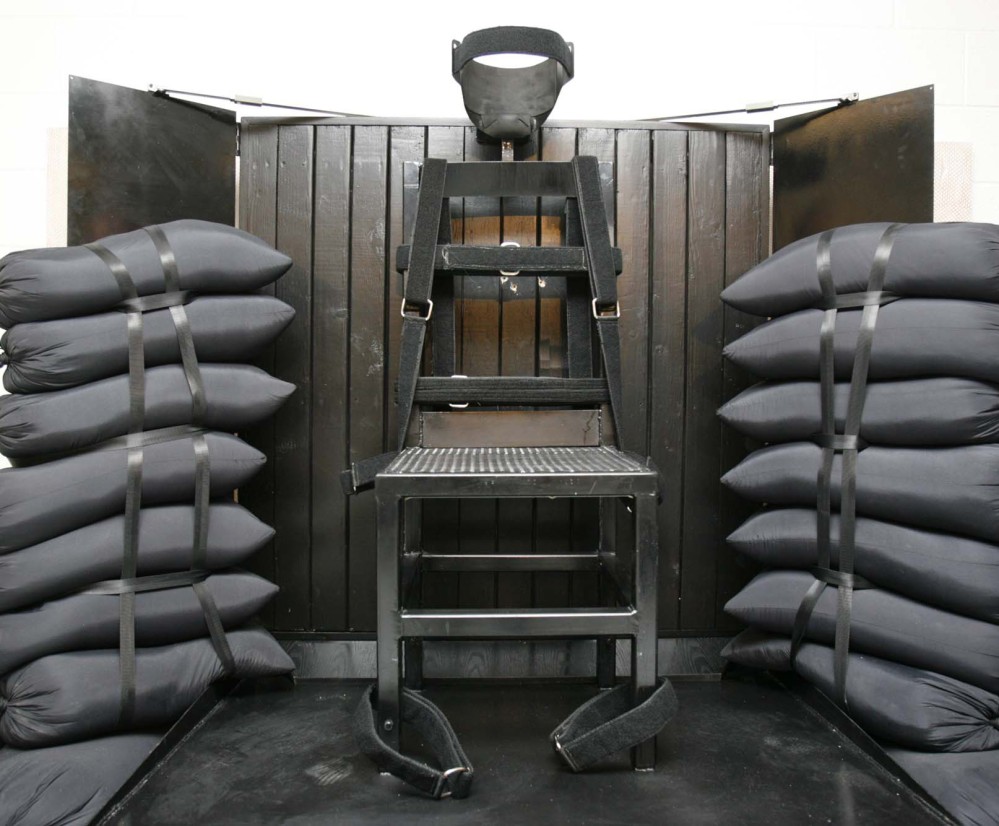SALT LAKE CITY — Ten years after banning the use of firing squads in state executions, Utah lawmakers on Wednesday endorsed a proposal to allow the practice again to avoid problems with lethal-injection drugs.
The proposal from Republican Rep. Paul Ray of Clearfield would call for a firing squad if the state cannot obtain the lethal injection drugs 30 days before the scheduled execution.
Utah dropped firing squads out of concern about the media attention, but Ray said it’s the most humane and instantaneous way to execute.
“We have to have an option,” Ray said. “If we go hanging, if we go to the guillotine, or we go to the firing squad, electric chair, you’re still going to have the same circus atmosphere behind it. So is it really going to matter?”
After a 20-minute discussion, an interim panel of Utah lawmakers approved the idea on a 9-2 vote Wednesday. The proposal still needs to go through the full legislative process.
Under current Utah law, death by firing squad is only an option for criminals sentenced to death before 2004. It was last used in 2010.
Ray said his proposal gives Utah flexibility if it’s unable to obtain the drugs needed in a lethal injection.
For years, states used a three-drug combination to execute inmates, but European drugmakers have refused to sell them to prisons out of opposition to the death penalty.
That move has led states to use different types, combinations and doses of lethal drugs, but those methods have been challenged in court.
Because of the challenges with the drugs and prolonged executions earlier this year in Oklahoma and Arizona, lawmakers in Utah and elsewhere are looking for alternatives.
Critics have said the firing squads are not without risks and will renew the media attention Utah had wanted to avoid.
Despite being restrained, an inmate could still move or the shooters could miss the heart, causing a slower, painful death, according to the Washington, D.C.,-based Death Penalty Information Center, which opposes capital punishment.
Utah stopped allowing inmates to choose a firing-squad execution in 2004, citing the excessive media attention it gave prisoners. Those sentenced to death before the law changed still have the option of choosing it.
It was last used in 2010 when Ronnie Lee Gardner was executed by five police officers with .30-caliber Winchester rifles.
Gardner was the third person to die by firing squad after the U.S. Supreme Court reinstated the death penalty in 1976. Several other inmates on Utah’s death row have opted to die by gunfire, but they are all years away from exhausting the appeals of their death sentences.
Jean Hill with the Catholic Diocese of Salt Lake City spoke Wednesday in opposition to the proposal and the death penalty in general.
“These may be heinous crimes that have been committed, and the idea of revenge is a normal human emotion,” Hill said. “But the state’s role is not to take revenge on people.”
Send questions/comments to the editors.



Success. Please wait for the page to reload. If the page does not reload within 5 seconds, please refresh the page.
Enter your email and password to access comments.
Hi, to comment on stories you must . This profile is in addition to your subscription and website login.
Already have a commenting profile? .
Invalid username/password.
Please check your email to confirm and complete your registration.
Only subscribers are eligible to post comments. Please subscribe or login first for digital access. Here’s why.
Use the form below to reset your password. When you've submitted your account email, we will send an email with a reset code.